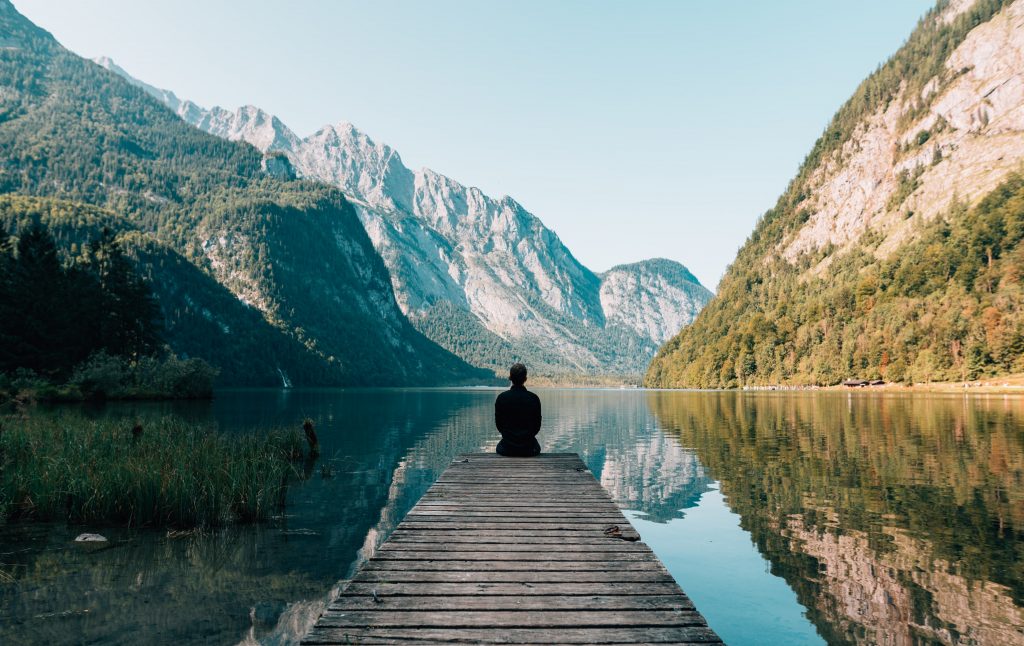For the past seven or so years, I’ve set aside time each fall to work on business strategy for the following year. Early on in my business, it was a day; then it grew to two days, then three.
Today, I take four to five days off from the routine of work to go on an annual business retreat. During these retreats, I think deeply about my life and business, understand my financials, create a clear strategy for the following year, design a high-level tactical plan . . . and rest and have fun. Because rejuvenation and joy are critical to creative and strategic thinking.
In past years, I’ve met with a friend at mutually agreed-upon locations in Idaho and California. While our businesses are different, they share enough similarities that we were able to use our time together to think, strategize, and work through challenges. I loved those retreats. Getting time with my similarly minded (and super smart) friend, getting away from the office, and being intentionally focused on vision and strategy—well, does it get much better for a solopreneur who does most of her business planning alone?
Last year, I had a truncated experience because of COVID. I was working harder than I had since starting my business and barely had space to come up for air, but I did take a day away to participate in the annual strategy planning day with an entrepreneur’s group I’m a member of. It was online, of course, and not quite the same as being in a new creative space. Still, I followed that session with another day of thinking and strategy and delivered my high-level strategic plan to the team.
So that takes me to this year. As I gear up for my annual strategy retreat, I thought, why not share my structure and plans with you? Please feel free to beg, borrow, and steal from how I run my retreats. And if you end up taking one of your own, please share with me in the comments! I’d love to hear about it.
OK, on to the good stuff.
4-day retreat plan
Here’s a basic overview of my general retreat structure. I’m planning to book an Airbnb so I have a central place outside of the house where I fill a wall with sticky notes and just be out of my normal environment.
Day 1: Life and professional vision
- Early morning: exercise (run, bike, yoga)
- Late morning: head to location by the sea (café or beach); invest one-plus hours thinking deeply and journaling using my life visioning guide. Aim to hit all six aspects of lifestyle design in my journaling, including financial goals, to utilize on day 2.
- Afternoon: hike
Day 2: Strategy building
- Early morning: exercise (run, bike, yoga)
- Late morning: journal, reflecting on any thoughts about life and work vision; create high-level strategy by breaking one-year vision into thematic “buckets”; for professional vision, define revenue goals for each bucket to reach financial goal for the year
- Early afternoon: review year-to-date profit and loss statement (P&L)
- Afternoon: photo tour; walk the city, taking photos along the way
Day 3: Strategic development
- Early morning: exercise (run, bike, yoga)
- Late morning: review my finances, including year-to-date profit and loss statement (P&L); define areas of overspending and others that need greater investment and set annual budget
- Early afternoon: break strategy into quarters with both ongoing activities and roughly two projects that can be completed in six- to eight-week sprints
- Afternoon: surf lesson
Day 4: Bringing it all together + getting tactical
- Early morning: exercise (run, bike, yoga)
- Late morning: synthesize plan into presentation for team; create high-level annual calendar (note that this will be handed to my operations coordinator for tactical planning)
- Afternoon: read a novel at the beach
There you have it: my annual retreat plan. Simple but effective!
What would you add? How do you create annual strategy? If you haven’t done something like this before—even a day, let alone a week—how could you integrate deep thinking and planning into your life or business?
Share your thoughts in the comments. I love learning from you!
[/et_pb_text][/et_pb_column]
[/et_pb_row]
[/et_pb_section]

I love it! In December 2020, I participated in a 3-day virtual business workshop where the organizers said to set aside time as though we were attending in person. I booked an Airbnb, a studio cottage overlooking Puget Sound. I returned to the same cottage in April 2021 for another similar workshop.
At some point, it would be fabulous to rent a place with a few other like-minded business owners and do an actual retreat following your model.
I love that you rented an Airbnb and treated it like an in-person retreat. I bet the view was absolutely stunning too! If you do end up booking a place for a retreat, I’d love to hear about it!
Thank you for sharing, Stacy. This is helpful! I admire your intentionality around this process and your commitment to the practice.
Thank you, Abbey! I’m glad you find it helpful and hope your strategic planning is meaningful and impactful this year!